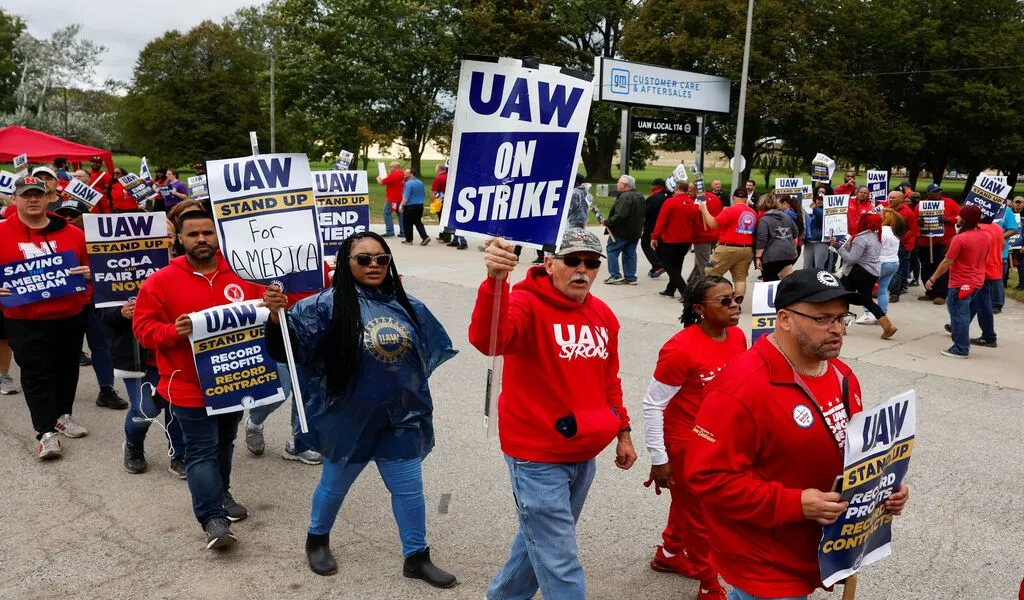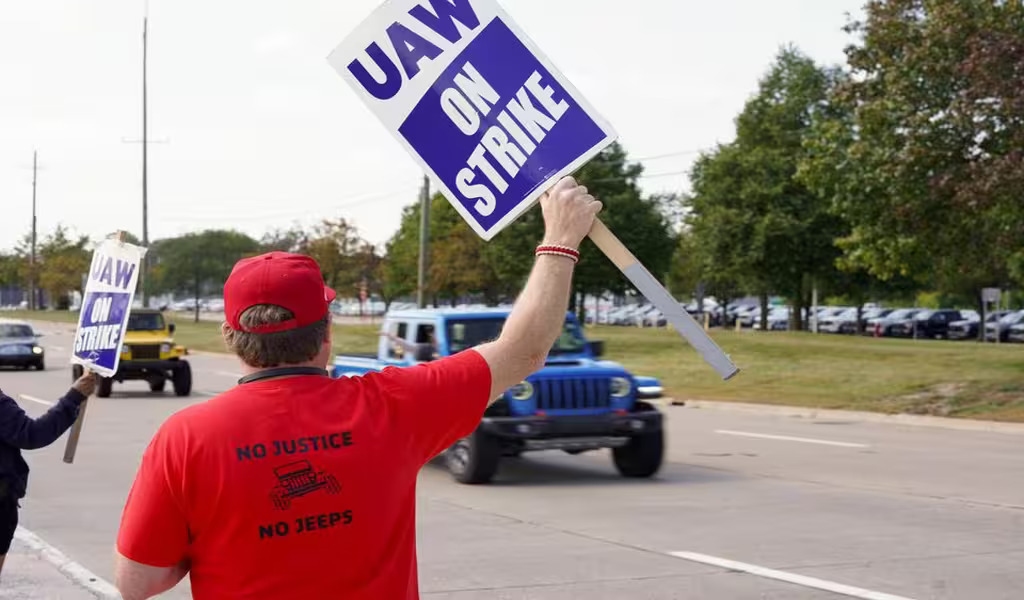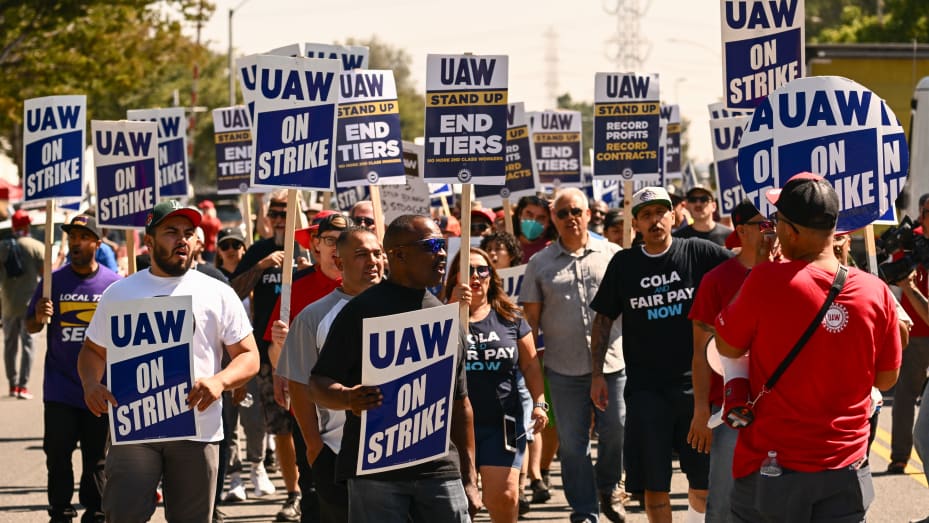News
United Auto Workers (UAW) Union Expands Strikes Against General Motors And Ford Motor

(CTN News) – In a development that further escalates the ongoing labor disputes in the American automotive industry, the United Auto Workers (UAW) union has announced the expansion of strikes against General Motors (GM) and Ford Motor.
UAW President Shawn Fain made this announcement, stating that the additional strikes would target two key U.S. assembly plants, namely Ford’s Chicago Assembly Plant in Illinois and GM’s Lansing Delta Township plant in mid-Michigan.
The Chicago Assembly Plant primarily produces popular SUVs such as the Ford Explorer and Lincoln Aviator, while the Lansing Delta Township plant is responsible for manufacturing the Buick Enclave and Chevrolet Traverse crossovers.
Although these plants are significant to their respective companies, they do not produce the highly profitable pickup trucks that are crucial to their bottom lines.
Chrysler’s parent company, Stellantis, was notably spared from these additional strikes due to recent progress in negotiations between the company and the union.
Fain emphasized the positive developments in talks with Stellantis, highlighting agreements related to cost-of-living allowances, the right not to cross picket lines, as well as the right to strike over product commitments, plant closures, and outsourcing moratoriums.
Workforce Participation and Impact
Approximately 6,900 autoworkers will participate in this latest wave of work stoppages, joining the approximately 18,300 workers already on strike.
In total, these strikes will involve around 25,200 employees, constituting roughly 17% of UAW members covered by the expired contracts with the Detroit automakers.
President Fain stated, “To restore the balance of power, we have to restore the strike,” underscoring the union’s commitment to leverage strikes as a bargaining tool.
These recent actions are part of a broader trend of UAW strikes, with similar actions occurring outside the Detroit automakers.
Automakers’ Responses and Criticisms
GM responded to the expanded strikes, noting that it had not received a “comprehensive counteroffer” from the union leadership following a contract proposal made the previous week.
Gerald Johnson, GM’s head of global manufacturing, expressed concerns about the growing impact of these strikes on both employees and customers, emphasizing the automaker’s commitment to reaching an agreement swiftly.
Stellantis echoed similar sentiments, acknowledging progress in negotiations but pointing out that gaps still exist. The company emphasized its dedication to working through these issues efficiently to reach a fair and responsible agreement.
Ford CEO Jim Farley, on the other hand, criticized the UAW’s actions, characterizing them as “grossly irresponsible” and implying that the union had premeditated these strikes. Farley specifically mentioned the union’s focus on battery plants as a point of contention.
In response, President Fain defended the union’s position, noting that Farley had not been actively involved in the negotiations and accused him of misrepresenting the state of the talks.
These additional strikes come a week after a similar expansion of strike actions. Initially, the UAW initiated work stoppages on September 15 at three assembly plants—one for each of the Detroit automakers.
Last week, the union expanded its targets to include 38 parts and distribution locations operated by GM and Stellantis, sparing Ford at the time due to perceived progress in their negotiations.
Selective UAW “Stand-Up Strikes”
Unlike past strikes, the UAW has opted for targeted strikes at specific plants, coining the term “stand-up strikes” to describe this strategy, reminiscent of the historic “sit-down” strikes by the UAW in the 1930s.
This approach aims to keep the automakers on edge and potentially pit them against each other to secure more favorable contract terms.
These recent developments illustrate the growing tensions between the UAW and American automakers, as both sides remain locked in contentious contract negotiations.
The future of the automotive industry, its workforce, and its stakeholders hangs in the balance as these strikes continue to unfold.






























